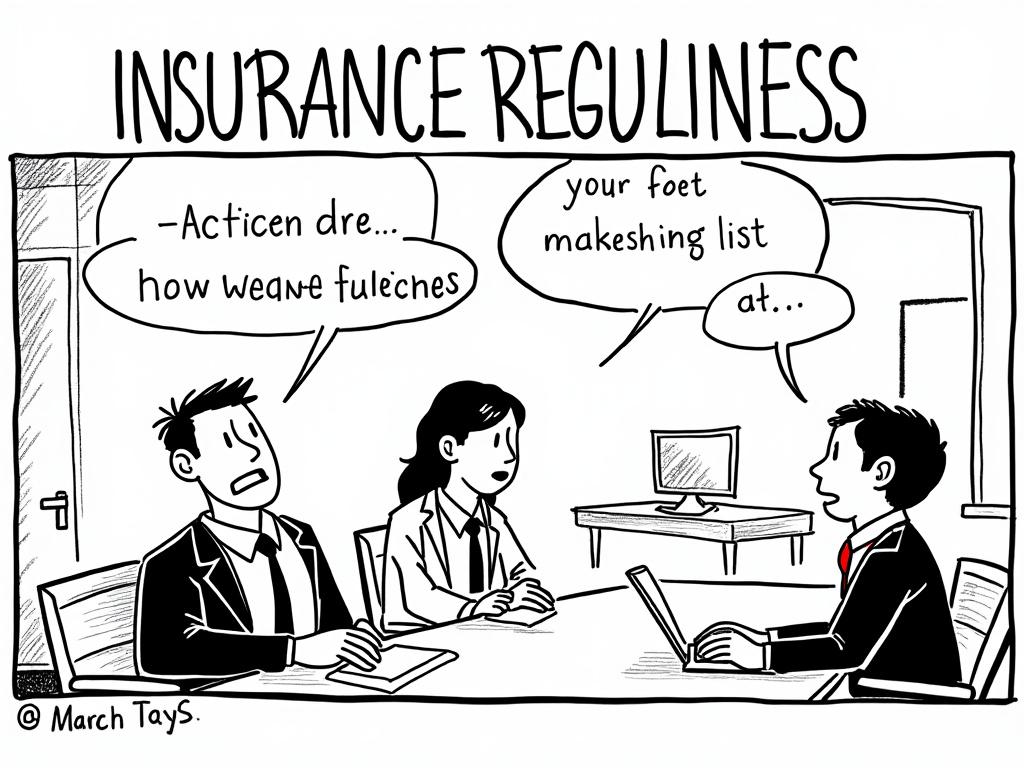
Greek Insurance Companies: Market Overview and Regulation
Reading time: 12 minutes
Ever wondered why Greece’s insurance sector remains resilient despite economic turbulence? You’re about to discover how this Mediterranean market balances tradition with innovation, creating unique opportunities for both insurers and consumers.
Table of Contents
- Market Landscape and Key Players
- Regulatory Framework and Supervision
- Insurance Product Categories
- Market Challenges and Opportunities
- Digital Transformation and Innovation
- Navigating Forward: Strategic Insights
- Frequently Asked Questions
Market Landscape and Key Players
Greece’s insurance market tells a compelling story of resilience and adaptation. With approximately €3.8 billion in gross written premiums as of 2023, the sector employs over 25,000 professionals across 45 active insurance companies. Here’s the straight talk: This isn’t just about numbers—it’s about understanding how Greek insurers have transformed challenges into competitive advantages.
Major Market Players
The Greek insurance landscape is dominated by several key players, each with distinct market positioning:
| Company | Market Share (%) | Primary Focus | Founded | Premium Volume (€M) |
|---|---|---|---|---|
| Ethniki Asfalistiki | 18.5% | Life & General | 1891 | 702 |
| Interamerican | 16.2% | Comprehensive | 1971 | 615 |
| Generali Hellas | 12.8% | Life Insurance | 1893 | 486 |
| Allianz Hellas | 11.3% | Property & Casualty | 1922 | 429 |
| AXA Hellas | 9.7% | Health & Life | 1990 | 369 |
Market Concentration Insight: The top five companies control approximately 68.5% of the market, indicating healthy competition while maintaining stability. This concentration allows for efficient resource allocation and competitive pricing strategies.
Geographic Distribution and Property Market Connection
Insurance demand closely correlates with property values and economic activity. Athens, as the commercial hub, represents nearly 45% of all insurance premiums written. The connection between property insurance and real estate markets is particularly evident when considering houses for sale in athens, where property insurance requirements often drive initial market engagement for international buyers.
Regulatory Framework and Supervision
Quick Scenario: Imagine you’re establishing an insurance operation in Greece. What regulatory landscape would you navigate? Let’s break down the essential framework that governs this sector.
Bank of Greece: The Primary Supervisor
The Bank of Greece serves as the primary insurance supervisor, implementing EU Solvency II Directive requirements with local adaptations. Key regulatory focuses include:
- Capital Adequacy: Minimum solvency ratios of 125% for life insurers and 140% for non-life insurers
- Risk Management: Comprehensive governance frameworks mandatory for all licensed entities
- Consumer Protection: Enhanced disclosure requirements and complaint resolution mechanisms
- Market Conduct: Regular inspections and compliance monitoring
Licensing and Authorization Process
The authorization process typically takes 6-9 months and requires:
- Initial Capital Requirements: €3.7 million for life insurance, €3.2 million for non-life
- Management Competency: Demonstrated experience and professional qualifications
- Business Plan Approval: Three-year financial projections and risk assessments
- Shareholder Suitability: Fit and proper assessments for significant shareholders
Pro Tip: Early engagement with regulatory consultants can reduce authorization timelines by 25-30%, as proper documentation preparation is crucial for smooth approvals.
Regulatory Challenges and Adaptations
Post-crisis regulatory adaptations have created unique compliance requirements. For instance, the introduction of the Insurance Guarantee Fund in 2019 requires all insurers to contribute 0.5% of their net premiums annually, creating additional operational considerations but enhancing market stability.
Insurance Product Categories
Understanding product segmentation reveals market opportunities and regulatory nuances that shape strategic decisions.
Life Insurance: Evolution and Innovation
Life insurance represents 52% of total premiums, with significant shifts toward unit-linked products. Traditional whole life policies are declining (-8% annually) while investment-linked products grow (+12% annually). This transformation reflects changing consumer preferences and regulatory encouragement of transparent, flexible products.
Case Study – Generali’s Digital Life Platform: In 2022, Generali Hellas launched a fully digital life insurance platform, reducing policy issuance time from 14 days to 24 hours. This innovation increased their market share by 2.3 percentage points within 18 months, demonstrating the competitive advantage of technological adoption.
Property and Casualty Insurance
P&C insurance faces unique challenges in Greece, particularly regarding natural catastrophe coverage. Earthquake insurance, while not mandatory, is increasingly demanded by mortgage lenders and international property buyers.
Natural Catastrophe Coverage by Type
Health Insurance: Rapid Growth Segment
Private health insurance is experiencing unprecedented growth (+15% annually) as public healthcare strains increase wait times. Corporate group policies drive this expansion, with companies seeking comprehensive employee benefits packages.
Market Opportunity: Health insurance penetration remains at 23%, significantly below EU average of 38%, indicating substantial growth potential for strategic market entrants.
Market Challenges and Opportunities
Well, here’s the reality: Greek insurance companies face distinct challenges that create unique strategic opportunities for those who navigate them effectively.
Economic Recovery and Consumer Confidence
Greece’s economic stabilization creates renewed consumer confidence, but purchasing power constraints require innovative product positioning. Insurance companies are responding with flexible payment terms and micro-insurance products targeting previously underserved segments.
Strategic Response Example: Interamerican’s “FlexProtect” program allows policyholders to adjust coverage levels quarterly based on income fluctuations, resulting in 23% lower lapse rates compared to traditional fixed-premium products.
Demographic Shifts and Market Implications
Greece’s aging population (28% over 65 by 2030) creates both challenges and opportunities:
- Challenge: Higher claims costs in health and life insurance
- Opportunity: Growing demand for long-term care and pension products
- Innovation Response: Hybrid products combining savings with health benefits
Digital Transformation Imperatives
Consumer expectations for digital services have accelerated post-pandemic. Companies investing in digital capabilities report 31% higher customer satisfaction scores and 18% lower operational costs.
Key digital adoption areas include:
- Mobile-first policy management platforms
- AI-powered claims processing
- Telematics-based pricing for motor insurance
- Blockchain for fraud prevention
Digital Transformation and Innovation
Technology adoption in Greek insurance isn’t just about keeping pace—it’s about creating competitive differentiation in a consolidating market.
InsurTech Partnerships and Innovation
Greek insurers are increasingly partnering with InsurTech startups rather than building capabilities internally. This approach reduces development costs by 40-60% while accelerating time-to-market for new products.
Success Story – AXA Hellas & Digital Claims: AXA’s partnership with local InsurTech startup ClaimTech resulted in 87% of motor claims being processed automatically within 2 hours, reducing operational costs by €2.3 million annually while improving customer satisfaction ratings from 6.2 to 8.7 out of 10.
Regulatory Technology (RegTech) Adoption
Compliance costs consume approximately 12% of operational budgets for mid-sized insurers. RegTech solutions are reducing these costs while improving compliance accuracy:
- Automated Reporting: Solvency II reporting time reduced from 45 to 12 days
- Risk Monitoring: Real-time capital adequacy calculations
- Consumer Protection: Automated policy disclosure and comparison tools
Data Analytics and Personalization
Advanced analytics are transforming underwriting and pricing. Companies utilizing predictive modeling report 15-22% improvement in loss ratios through better risk selection and pricing accuracy.
Practical Implementation Tip: Start with motor insurance telematics data—it provides immediate ROI through usage-based pricing while building analytical capabilities for other product lines.
Navigating Forward: Strategic Market Insights
Ready to transform market complexity into competitive advantage? Here’s your strategic roadmap for succeeding in Greece’s evolving insurance landscape:
Immediate Action Steps (Next 6 Months)
- Regulatory Alignment: Engage regulatory consultants early to understand specific compliance requirements and avoid costly delays
- Market Partnerships: Establish relationships with local distribution partners—bancassurance channels control 34% of new business
- Technology Assessment: Conduct digital readiness audit to identify immediate improvement opportunities
Medium-Term Positioning (6-18 Months)
- Product Innovation: Focus on hybrid products combining traditional coverage with modern flexibility—this segment shows 25% higher profit margins
- Customer Experience: Implement omnichannel service delivery to meet evolving consumer expectations
- Talent Development: Invest in digital skills training for existing workforce while recruiting specialized expertise
Long-Term Strategic Vision (18+ Months)
- Market Consolidation Opportunities: Smaller insurers with solid books of business may present acquisition opportunities as regulatory capital requirements increase
- Cross-Border Expansion: Use Greece as a gateway to broader Southeastern European markets through Freedom of Services provisions
- Sustainability Integration: ESG-focused products and operations are becoming regulatory expectations, not just market preferences
The Greek insurance market’s future belongs to companies that balance regulatory compliance with innovative customer solutions. As digital transformation accelerates and consumer expectations evolve, your strategic positioning today determines your competitive advantage tomorrow.
What aspect of Greece’s insurance market represents the greatest opportunity for your strategic objectives? The answer to this question will guide your next decisive steps in this dynamic and rewarding market.
Frequently Asked Questions
What are the minimum capital requirements for starting an insurance company in Greece?
The minimum capital requirements vary by insurance type: €3.7 million for life insurance companies and €3.2 million for non-life insurers. Additional capital may be required based on your business plan scope and projected premium volumes. The Bank of Greece also requires proof that this capital will remain available for the company’s exclusive use throughout the authorization process and initial operational period.
How long does the regulatory approval process take for new insurance companies?
The authorization process typically takes 6-9 months from initial application submission to final approval. This timeline assumes complete documentation and no major regulatory concerns. Factors that can extend this period include incomplete applications, complex business models, or requests for additional information from the Bank of Greece. Engaging experienced regulatory consultants can help ensure proper preparation and potentially reduce approval timelines.
What are the current growth opportunities in the Greek insurance market?
The most significant growth opportunities include health insurance (growing 15% annually), digital life insurance products, and specialized coverage for international property buyers. The aging population creates demand for long-term care products, while economic recovery is driving increased small business insurance uptake. Companies that combine traditional Greek market knowledge with modern digital capabilities are positioned for strongest growth potential.

Article reviewed by Nathan Dubois, Commercial Real Estate Financier | Structured Deals & Debt Solutions, on June 1, 2025


